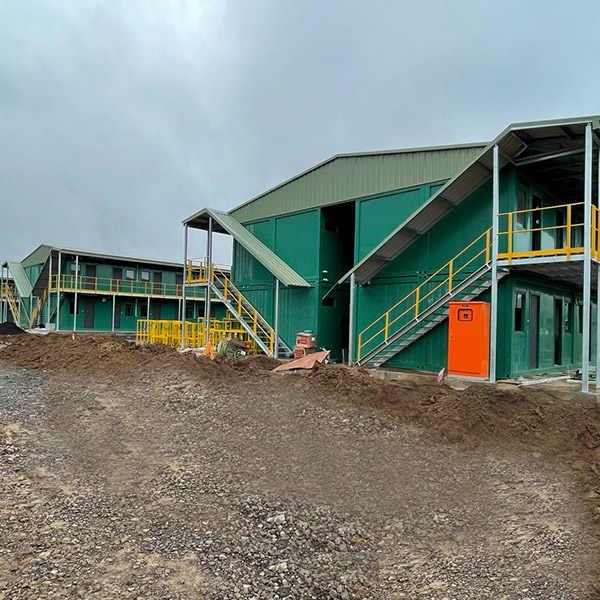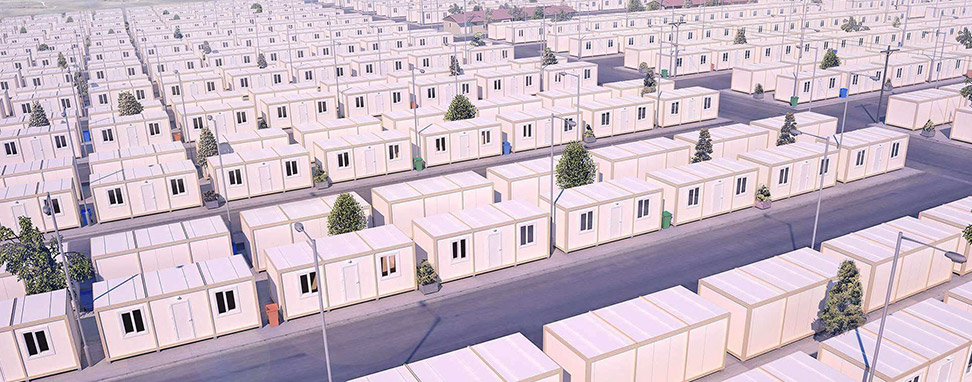Construction projects, especially large-scale ones, are complex and often take place in remote locations far from urban centers. In such cases, workers may need to stay on-site for extended periods of time, making a construction site camp an essential component of the project. A construction site camp provides a temporary living space for workers, offering the necessary accommodations, amenities, and services to ensure their well-being and productivity.
Construction site camps are temporary facilities designed to house and support workers during the construction process. They are especially common in large or remote construction projects such as highways, oil rigs, mining sites, and infrastructure development in less accessible areas. Here’s why these camps are vital:
In many construction projects, the site may be located in an area with limited or no nearby housing options. In these cases, a site camp becomes the primary residence for workers. The camp allows workers to stay on-site, saving time and energy that would otherwise be spent commuting to and from the project site.
Construction projects often run on tight schedules, and downtime due to long commutes or lack of proper facilities can hinder progress. By providing on-site accommodations, construction site camps help minimize downtime, ensuring that workers have easy access to the site and can begin their shifts promptly.
A key consideration in establishing a construction site camp is worker welfare. Long hours and physically demanding work can take a toll on workers’ health and morale. Providing comfortable accommodations, access to meals, and recreational spaces can improve worker satisfaction, reduce turnover, and help prevent burnout. Worker comfort also reduces absenteeism due to illness or fatigue, contributing to the overall success of the project.

Health and safety are critical in construction, where workers are exposed to various risks. Construction site camps typically have medical facilities, hygiene facilities (such as showers and toilets), and access to clean water, all of which are necessary to maintain a healthy environment. By offering basic amenities and medical care, a site camp can reduce the risk of illnesses and accidents, helping to ensure that workers are in good condition to perform their jobs.
For large projects that last several months or even years, a well-established site camp can be more cost-effective than continuously providing transport for workers from nearby towns or cities. Camps can be scaled up or down depending on the size of the workforce and the project’s needs, making them a flexible solution for any construction project.
A well-organized construction site camp includes several key components to ensure that workers have everything they need for their stay. These components are designed to promote comfort, safety, and efficiency:
The most basic component of a construction site camp is the accommodation units. These are typically modular or prefabricated buildings that house workers during their stay. Depending on the project, these units can range from simple dormitory-style rooms to more private cabins, each equipped with essential furniture and utilities such as beds, storage spaces, and lighting.
On-site food is a critical consideration in construction site camps. Camps typically feature dining halls or kitchens that provide nutritious meals to workers. These facilities should be equipped to handle large volumes of food production, offering meals that meet workers' dietary requirements. In some camps, workers may have access to 24-hour catering services to accommodate different shift patterns.
Cleanliness and hygiene are paramount in a construction site camp. Toilets, showers, and handwashing stations must be plentiful and regularly maintained. In remote areas, water and waste management systems must be carefully planned to ensure proper sanitation and to avoid contamination. Adequate laundry facilities for cleaning clothes and bedding are also a key part of the camp’s infrastructure.
A construction site camp must have medical facilities that are equipped to handle minor injuries and health concerns. Depending on the size of the camp, there may be a full-time on-site nurse or doctor available to address health issues. In more remote locations, telemedicine options may be available for consultations with specialists. Emergency response plans should also be in place to ensure the safety and well-being of workers in case of accidents.
Workers on construction sites often deal with long hours and challenging physical labor. To maintain morale and promote mental health, many construction site camps include recreational and relaxation areas. These might include common rooms with TVs, games, and internet access, as well as outdoor spaces for activities like walking, sports, or simply relaxing during downtime.
Security is an essential component of a construction site camp. Workers’ personal safety should be a priority, and camps should have measures in place to protect workers from external threats, such as fencing, lighting, and security personnel. In addition, safety protocols should be implemented to ensure that the camp environment does not pose any risks to workers. This includes fire safety measures, safe transportation around the camp, and monitoring hazardous materials.
For remote construction projects, transportation between the camp and the construction site is an essential logistical consideration. Camps should be designed to allow easy access to the worksite, whether by shuttle buses, walking paths, or vehicles provided by the project managers. The transportation network should be reliable and safe, especially in areas with challenging terrain or inclement weather.
Benefits of Construction Site Camps for Project Managers
For project managers, a construction site camp provides several benefits beyond just worker accommodation. Some of these benefits include:
By minimizing the need for workers to commute, site camps ensure that workers are available to work during their scheduled shifts, reducing downtime and improving overall project efficiency.
Although setting up a site camp requires an initial investment, it can be a cost-effective solution in the long run by reducing transportation costs, minimizing absenteeism, and improving worker morale, which can contribute to the project’s success.
Many construction projects, particularly those in remote or hazardous locations, require compliance with local labor laws and safety regulations. A well-designed construction site camp ensures that workers are provided with adequate accommodations and facilities, which helps meet these regulatory requirements.








